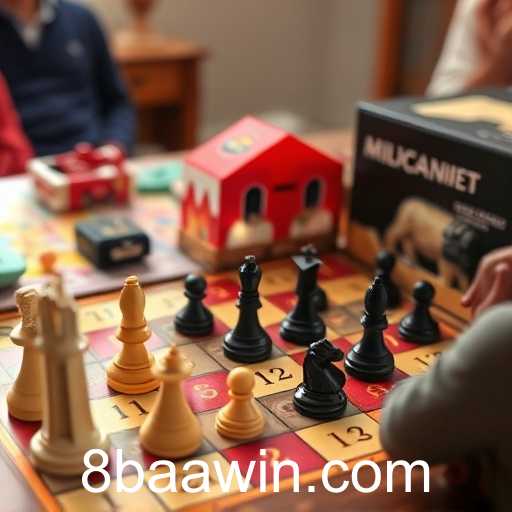Board games have long been a cornerstone of human entertainment, transcending cultures and generations with their unique ability to blend strategy, chance, and social interaction. As demonstrated by the online category 'Board Games' marked by the keyword 'baawin', these games continue to captivate audiences worldwide. This article will take you on a journey through the history, development, and cultural impact of board games, highlighting their transformative role in the digital age.
The Origins and Evolution of Board Games: Board games are believed to have originated over 5,000 years ago, with ancient societies like those in Egypt, Mesopotamia, and China creating the earliest known examples. Games like Senet, Go, and Chess evolved from these primal roots, paving the way for the wide array of board games we see today. Traditionally enjoyed in living rooms and around tables, these games reflect historical contexts and philosophies, evolving over time as they traversed through different societies.
The Digital Revolution: With the advent of the internet, board games have made a successful transition to digital platforms, expanding their reach beyond physical boundaries. Websites and apps have revolutionized how people experience these classics, making them accessible to a global audience. The keyword 'baawin' exemplifies this trend, representing a portal where enthusiasts can explore diverse titles and engage in competitive play with users worldwide.
Cultural Significance: Board games are more than just pastimes; they are cultural artifacts reflecting the societies in which they were born. They teach important life skills, such as problem-solving, strategic thinking, and teamwork. Furthermore, games like Monopoly, Risk, and Pandemic serve as microcosms of economic, political, and social experiences, allowing players to simulate real-world scenarios in a fantastical setting.
A Resurgence in Popularity: The modern resurgence in board game popularity suggests a growing global appreciation for these time-honored traditions. Whether played in person or online, board games offer respite from the high-speed digital world, providing an opportunity for family bonding, strategic thought, and fun. Online board games, hosted under the 'Board Games' category with subsets denoted by keywords like 'baawin', enhance this experience by fostering connections across continents.
In conclusion, board games remain integral to our cultural fabric, continuously adapting to contemporary preferences while preserving the innate joy of play. As we embrace both traditional and digital formats, the timeless appeal and educational value of board games ensure their place on our game shelves for generations to come.








